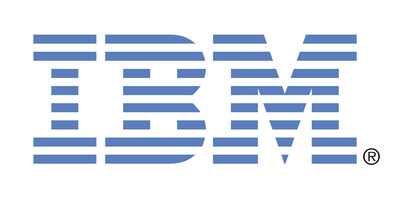IBM Introduces AI-Driven Autonomous Security for Cloud to Enhance Cloud Security and Compliance Management
In a strategic move to streamline the management of cloud security and compliance tasks, IBM has announced the launch of its new solution, Autonomous Security for Cloud (ASC). This innovative offering is designed to assist organizations transitioning to cloud-based environments by leveraging Amazon Bedrock’s generative artificial intelligence (AI) technology. The integration aims to automate and enhance security and compliance processes, making it particularly beneficial for organizations that are accelerating their cloud journey within Amazon Web Services (AWS) environments.
Addressing Cloud Security Challenges with AI
According to IBM’s 2024 Cloud Threat Landscape report, as organizations increasingly rely on cloud computing, they face numerous security challenges, particularly misconfigurations and compliance failures. These issues are identified as the top threats in the current technological ecosystem, where security is a critical concern. Maintaining compliance and security in these environments can be particularly complex, especially in heavily regulated sectors like financial services, manufacturing, and the public sector. These industries traditionally rely on legacy, labor-intensive compliance processes, which struggle to keep pace with the rapidly evolving cloud infrastructures and stringent regulatory standards necessary for data protection.
IBM’s ASC solution addresses these challenges by utilizing Amazon Bedrock’s generative AI technology. This powerful tool automates the implementation, evolution, and enforcement of security controls chosen by the client, offering a more efficient approach to cloud security management.
Empowering Organizations with AI-Driven Automation
The advent of generative AI and automation presents a transformative opportunity for managing cloud security. As observed by Dave Vellante, Chief Analyst and co-founder of theCUBE Research, 96% of organizations continue to pursue cloud transformation. This trend intensifies the challenge of managing and securing data, yet generative AI-driven automation offers the potential to revolutionize this space, enabling companies to quickly adapt, enforce, and control data policies.
ASC utilizes generative AI to assist organizations in mitigating operational burdens, accelerating deployment and management, and reducing risks. By providing continuous monitoring, immediate adjustments, and proactive threat mitigation, ASC minimizes the need for manual intervention. This solution augments traditional Cloud Security Posture Management (CSPM) tools by offering a tailored approach to security management, leveraging AI intelligence to consider the client-selected control framework and any future updates. Furthermore, ASC automates hygiene maintenance, resolves misconfigurations, and addresses long-term policy drift.
Enhancing Cloud Security with IBM’s Expertise
Dimple Ahluwalia, Global Business Information Security Officer and Senior Partner for Cybersecurity Services at IBM, emphasized the benefits of ASC, stating, "IBM recognized the opportunity for our clients to better manage and enforce security policies in their cloud environments. With ASC, we’re utilizing AI and automation tools to help organizations better manage their data, tackle cloud migration challenges, and positively impact their compliance posture, delivering value to stakeholders across the C-suite."
As a scalable cloud solution, ASC is designed to help clients in several ways:
- Utilizing generative AI to comprehend clients’ security policies and standards through large language models (LLMs) and retrieval-augmented generative (RAG) applications.
- Inferring AWS native technical controls applicable to an organization’s workloads based on the chosen regulatory obligations.
- Autonomously monitoring and deploying cloud security controls to address misconfigurations.
- Resolving non-compliance discrepancies using cloud-native automation.
Accelerating Cloud Transformation with IBM and AWS
The introduction of ASC highlights IBM’s ongoing commitment to helping clients leverage the capabilities of AWS. By combining IBM’s cloud transformation expertise with AWS’s robust platform, ASC empowers organizations to accelerate their cloud adoption, opening new avenues for business transformation and growth.
IBM consultants, equipped with cloud certifications and AWS expertise, are available to support clients in deploying and integrating ASC. They offer tailored assessments, continuous monitoring, optimization, and proactive risk and compliance management. The goal is to enhance accuracy and effectiveness over time, adapting to the evolving needs of clients’ cloud infrastructures.
About IBM
As a leading provider of global hybrid cloud and AI solutions, IBM offers extensive consulting expertise to help clients across 175 countries. IBM’s services enable organizations to harness insights from their data, streamline business processes, reduce costs, and gain a competitive edge. Over 4,000 government and corporate entities in sectors like financial services, telecommunications, and healthcare rely on IBM’s hybrid cloud platform and Red Hat OpenShift for their digital transformations. IBM’s advancements in AI, quantum computing, industry-specific cloud solutions, and consulting provide clients with open and flexible options, all supported by IBM’s commitment to trust, transparency, responsibility, inclusivity, and service.
For more information, visit IBM’s official website at www.ibm.com.
Conclusion
IBM’s introduction of the Autonomous Security for Cloud solution marks a significant step forward in the realm of cloud security management. By leveraging the power of generative AI and automation, IBM is poised to help organizations navigate and secure their cloud environments more effectively. As cloud adoption continues to grow, solutions like ASC will become increasingly vital in ensuring that businesses can manage their data securely while maintaining compliance with industry regulations. This innovative approach not only addresses current challenges but also sets a new standard for the future of cloud security.
For more Information, Refer to this article.


































